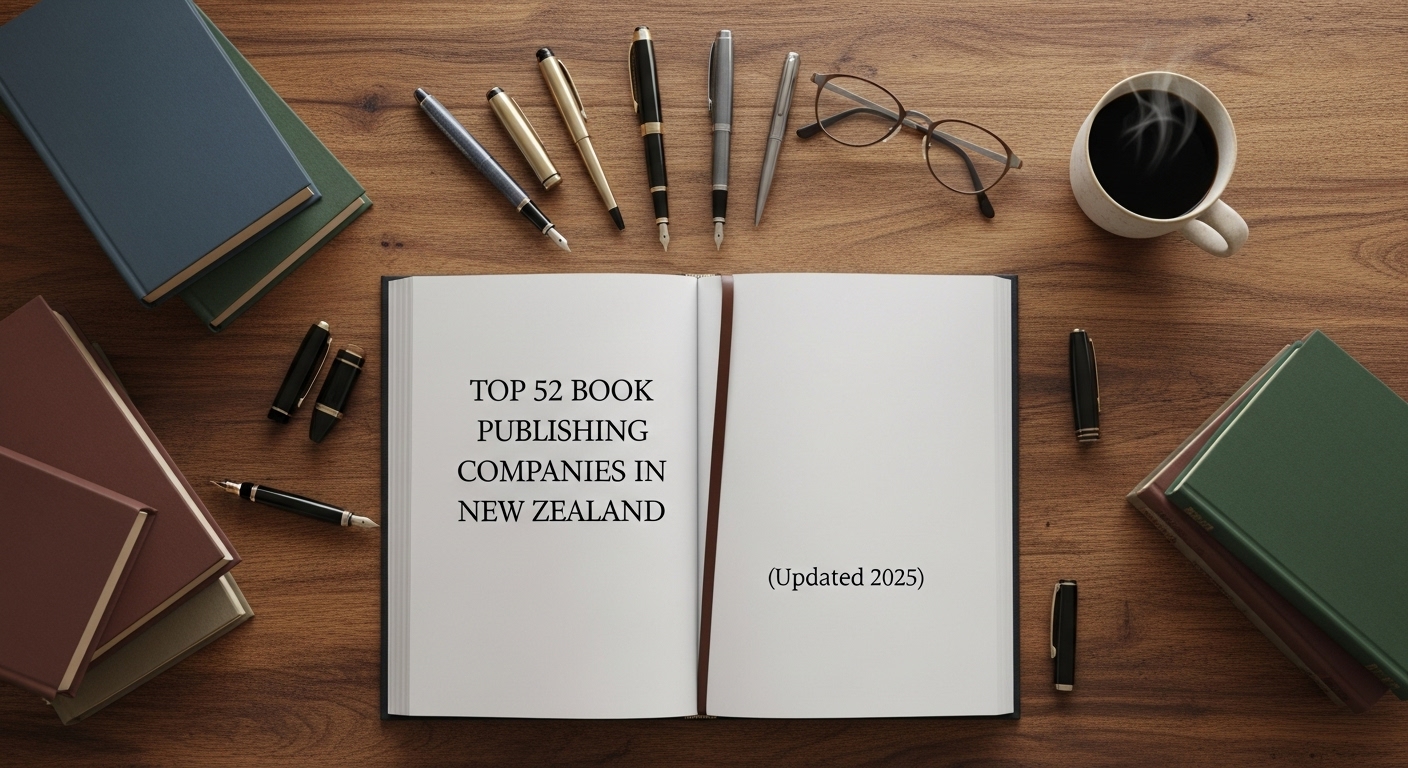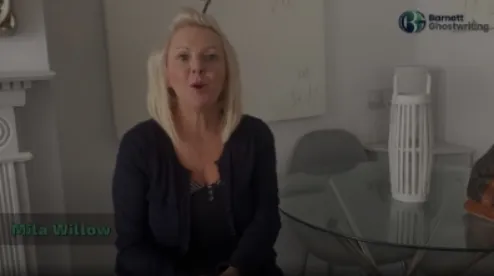
New Zealand’s publishing industry is a blend of tradition, innovation, and cultural diversity. From globally recognized publishing houses to small independent presses, Aotearoa offers opportunities for every kind of author — whether you write literary fiction, non-fiction, children’s books, poetry, or academic works. Māori and Pasifika publishers play a vital role in preserving and promoting indigenous voices, while commercial publishers bring local stories to international shelves.
1. Barnett Ghostwriting
Barnett Ghostwriting is a premium ghostwriting and publishing support service. They help authors transform concepts into polished manuscripts, offering writing, editing, and production support. Ideal for professionals and storytellers looking to publish without the stress of handling the process themselves.
2. Penguin Random House New Zealand
A powerhouse in the global publishing scene, this New Zealand arm publishes bestsellers across genres. Their distribution network ensures books reach both national and international audiences.
3. HarperCollins Aotearoa New Zealand
Part of the international HarperCollins family, this branch publishes popular fiction, non-fiction, and children’s books with strong marketing and retail support.
4. Hachette New Zealand
Known for high-quality trade publishing, Hachette New Zealand offers a diverse list including literary fiction, commercial blockbusters, and memoirs.
5. Allen & Unwin New Zealand
A respected independent publisher bringing both international bestsellers and New Zealand voices to market. Their list includes literary fiction, narrative non-fiction, and children’s books.
6. Victoria University Press (Te Herenga Waka University Press)
A leading academic and literary publisher, specialising in poetry, fiction, and scholarly works that reflect New Zealand’s culture and society.
7. Auckland University Press
Dedicated to high-quality academic publications, Auckland University Press also publishes works on art, history, and literature, often with a distinct local focus.
8. Bridget Williams Books
A specialist in thoughtful non-fiction titles exploring New Zealand’s history, politics, and identity. Their books often spark national conversation.
9. Bateman Books
A trade publisher producing lifestyle, history, travel, and illustrated books. Popular in both gift shops and mainstream bookstores.
10. Potton & Burton
Famous for breathtaking photography and nature titles, Potton & Burton celebrates New Zealand’s landscapes, wildlife, and heritage.
11. Mākaro Press
An independent press passionate about literary fiction, poetry, and creative non-fiction. Known for championing debut authors.
12. Gecko Press
Specialising in children’s books, Gecko Press translates acclaimed stories from around the world and creates original New Zealand titles.
13. HUIA Publishers
A Māori-owned press dedicated to publishing works in te reo Māori and English, with a focus on preserving and sharing indigenous stories.
14. The Cuba Press
Produces creative, design-focused books across poetry, fiction, and non-fiction, with an emphasis on artistic presentation.
15. Massey University Press
An academic publisher producing research-based works in history, education, and environmental studies, alongside general non-fiction.
16. Otago University Press
Renowned for scholarly excellence, Otago University Press publishes cultural history, poetry, and high-quality non-fiction.
17. Little Island Press
Produces children’s books, art titles, and illustrated works, often highlighting New Zealand culture and creativity.
18. OneTree House
A specialist in children’s and young adult books, offering fresh, engaging stories with educational value.
19. Scholastic New Zealand
Part of the global Scholastic group, this branch dominates the children’s publishing market with fiction, picture books, and school resources.
20. Cloud Ink Press
An independent publisher committed to giving a platform to new voices in fiction and non-fiction.
21. Quentin Wilson Publishing
Publishes high-quality non-fiction and illustrated books, often with a historical or cultural focus.
22. Craig Potton Publishing
Produces visually stunning books celebrating New Zealand’s natural environment, art, and photography.
23. Steele Roberts Aotearoa
A Wellington-based independent press publishing poetry, biographies, and general non-fiction.
24. Seraph Press
A boutique publisher focusing on poetry, translations, and literary works.
25. Escalator Press
Run by the Whitireia Publishing Programme, it offers new authors the opportunity to publish as part of a student-led initiative.
26. Oratia Books
Publishes children’s books, non-fiction, and educational titles with a strong connection to New Zealand culture.
27. David Bateman Ltd
A well-established trade publisher producing illustrated books, biographies, and lifestyle titles.
28. Huia Short Stories Imprint
A dedicated imprint for short story collections, particularly those with Māori and Pasifika perspectives.
29. Lift Education
Publishes educational resources for schools, including literacy series and curriculum-based materials.
30. Learning Media
Known for producing school books and educational programmes for the New Zealand market.
31. Mary Egan Publishing
An independent, design-driven publisher producing fiction, non-fiction, and memoir.
32. Phantom House Books
A boutique publisher of poetry, fiction, and essays, often from emerging voices.
33. Pindar NZ
Specialises in printing and book production alongside select publishing projects.
34. Reed Publishing (Heritage Imprint)
Focuses on heritage, history, and cultural titles with a strong New Zealand identity.
35. Black Chook Books
An independent children’s publisher producing imaginative, playful titles.
36. The CopyPress
Offers publishing and printing services, with a focus on self-published and small-run titles.
37. Toitoi Media
Publishes creative works by young New Zealand writers and illustrators, encouraging the next generation of talent.
38. South Pacific Press
Produces educational books for schools in New Zealand and the Pacific region.
39. Random House Children’s Books NZ
The children’s division of the major publishing house, focused on picture books and YA.
40. Awa Press
Specialises in well-researched non-fiction on history, travel, and lifestyle.
41. Gecko Press Education Line
Produces learning resources alongside their children’s books.
42. Big Ideas Press
Publishes non-fiction and professional development titles.
43. Exisle Publishing
Publishes self-help, health, and personal development books, along with lifestyle titles.
44. Essential Resources
Specialises in educational material for teachers and classrooms.
45. Page Break Press
A small press producing contemporary fiction and poetry.
46. Egan Publishing Services
Offers publishing support for authors, from editing to design and print.
47. Tomorrow’s Schools Press
Publishes educational reform and teaching-focused books.
48. Te Papa Press
The publishing arm of the Museum of New Zealand Te Papa Tongarewa, producing art and cultural history books.
49. National Library Publishing
Publishes works connected to New Zealand’s documentary heritage.
50. Waiatarua Publishing
Produces local history and cultural titles.
51. Craig Smith Publishing
Known for children’s titles, often humorous and musical in nature.
52. Lighthouse Press
A small indie press producing fiction and non-fiction with a creative edge.
How to choose the right publisher for your book (H2)
Choosing a publisher is both strategic and personal. Start by asking: what is my genre and audience; do I need wide distribution; do I want an advance or prefer higher royalties; am I aiming for literary prestige or commercial reach? Use the following checklist:
- Match the list: read recent titles from each publisher to confirm they publish books like yours. Publishers usually list recent catalogues on their sites.
- Submission requirements: check whether the publisher accepts unsolicited manuscripts or requires agented submissions.
- Distribution & rights: larger houses (Penguin, Hachette, HarperCollins) offer broad distribution and stronger foreign rights teams; university presses are ideal for scholarly and regionally focused non‑fiction.
- Editorial support: small presses often provide close editorial attention and a more collaborative relationship.
- Services vs. vanity press: be wary of firms that require large upfront fees without clear distribution or editorial investment. Hybrid publishers and author services are legitimate but check contracts carefully.
- Cultural fit: for Māori or Pasifika content, choose publishers with a proven track record in kaupapa Māori or Pacific publishing (e.g., Huia Publishers, Mila’s Books, Kotahi Rau Pukapuka Trust).
Benefits of publishing with New Zealand companies
Publishing in New Zealand brings several advantages:
- Local market expertise: NZ publishers understand Kiwi readers, landscapes, history, iwi (tribal) contexts and cultural sensitivities.
- Support for Māori and Pasifika voices: a strong focus on indigenous languages and culturally aware publishing.
- Close editorial relationships: many independent publishers offer hands‑on editorial support and marketing tailored to local media.
- Access to grants and funding: authors and publishers in Aotearoa can access Creative NZ grants, translation support, and PANZ‑backed resources.
- International pathways: larger NZ imprints are part of global groups and can help sell rights overseas while retaining local identity.
2025 Guide to Average Publishing Costs in New Zealand
| Service / Route | Typical cost to author (NZD) | Notes |
| Traditional publishing | $0 (no fee) | Publisher covers production; author receives advance + royalties (if offered). |
| Hybrid publishing package | $1,500 – $15,000 | Services vary — editorial, design, distribution; vet contracts carefully. |
| Self‑publishing (production only) | $500 – $8,000 | Covers editing, design, formatting and ISBN; print-on-demand reduces upfront print costs. |
| Professional ghostwriting | $5,000 – $80,000+ | Project dependent (length, research, author involvement). Barnett Ghostwriting and similar services fall in this spectrum. |
| Editing (developmental) | $800 – $5,000 | Depends on manuscript length and editor experience. |
| Copyediting & proofing | $300 – $2,000 | Per-word or per-hour rates common. |
| Cover design & illustration | $300 – $5,000 | Higher for illustrated or children’s books. |
| Marketing budget (author) | $200 – $20,000+ | Optional; trade publishers usually contribute marketing resources for select titles. |
Conclusion
Aotearoa’s publishing landscape is diverse, energetic and increasingly outward‑looking. Whether you pursue a traditional contract with a major trade house, build a collaborative relationship with an independent press, or choose hybrid and self‑publish options, New Zealand has reputable partners across every stage of the journey. Use the list above as a starting point — research each press’s recent titles, submission policies and cultural fit — and match your goals to the publisher that will best champion your book.





